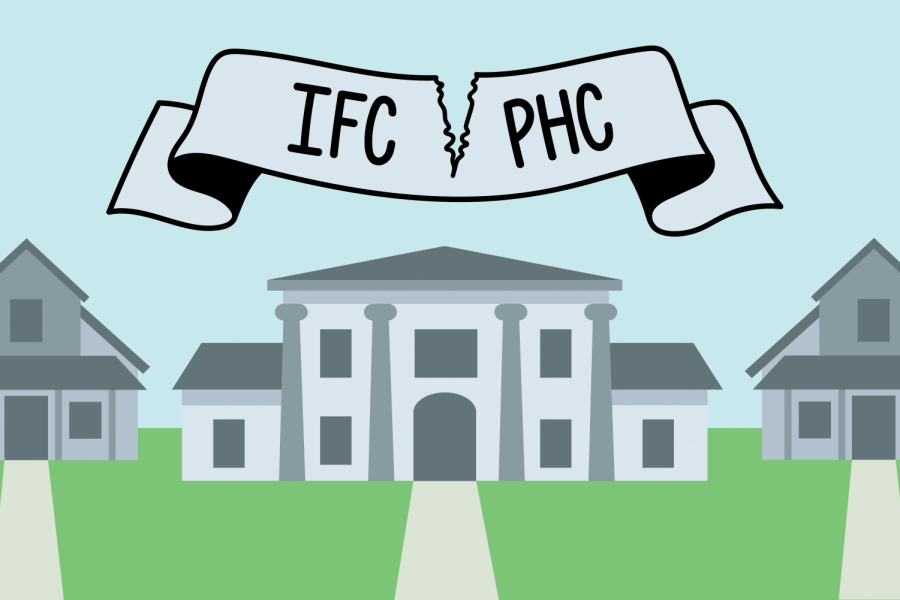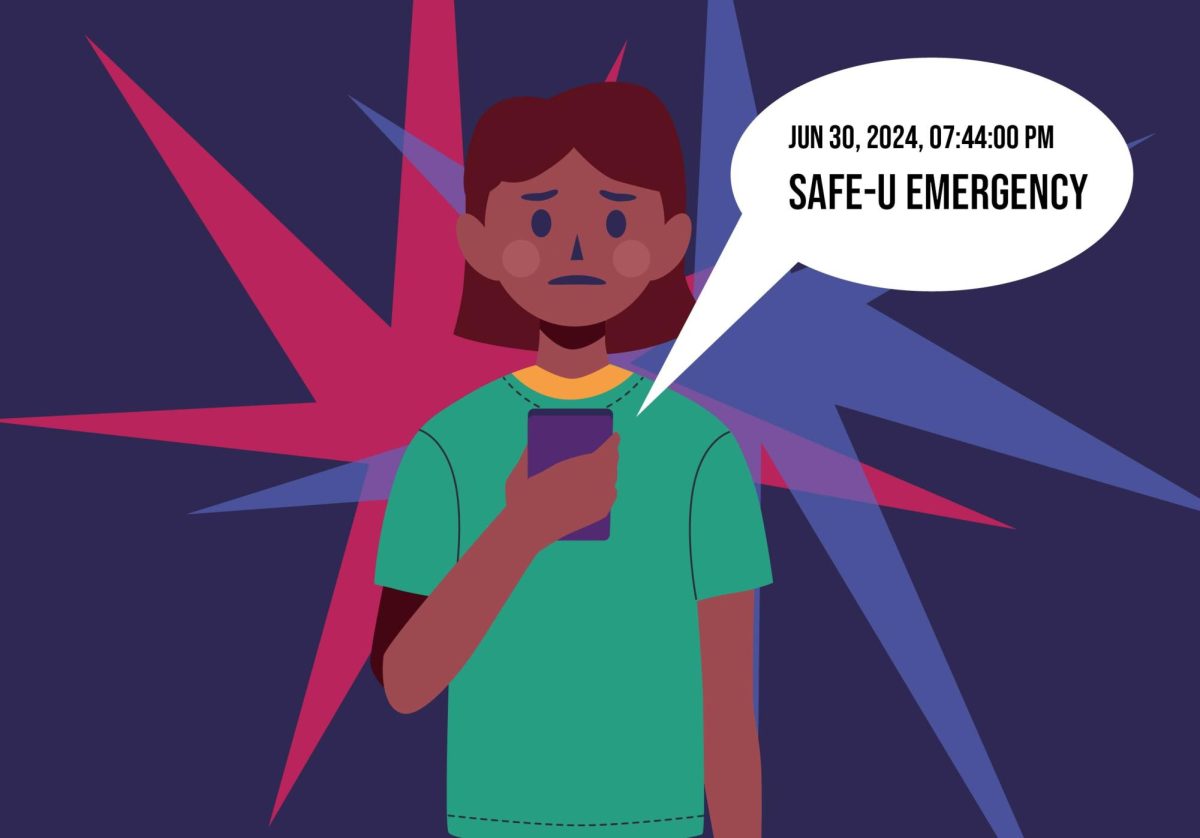The formal partnership between the Panhellenic Council (PHC) and Interfraternity Council (IFC) will stay severed this spring semester to hold the IFC accountable for implementing policies that address racism, sexism and safety issues in their community.
The PHC ended their relationship with the IFC late last August in a letter that said the relationship between the councils “perpetuates racism, heteronormativity, sexism and sexual violence.” In the letter, the PHC said that every PHC chapter “has a conflict with a chapter in the [IFC] related to sexual assault.” The PHC also condemned the IFC for their lack of initiative regarding the Black Lives Matter movement and their poor adherence to COVID-19 guidelines. The Panhellenic Council voted again to stay separate from the IFC on Feb. 21.
The organizations will reevaluate their partnership every semester to ensure “progress is being made within each individual organization,” Audrey Schmalz, president of the PHC, said in an email to the Minnesota Daily.
The two councils will continue the termination of any council-wide initiatives other than Greeks Against Sexual Violence. Because the PHC cannot bar individual chapters from organizing events with IFC chapters, individual sororities may still co-host events with fraternities.
“We wholeheartedly believe changes made should stem from within …” Schmalz said in the email. “We are first and foremost working to rebuild our individual community and want to see IFC succeed in doing the same.”
As is routine at the beginning of November, both councils elected new executive boards. The new IFC executive board outlined its priorities for the spring semester, and the PHC plans to release its benchmarks in the coming weeks.
The IFC explained its initiatives further in a Q & A session on Feb. 20. Questions, which Greek community members submitted anonymously before the meeting, included topics such as the IFC’s relationship with the Multicultural Greek Council (MGC), their stance on sexual assault cases and their relationship with the University of Minnesota Police Department.
“Time and time again, your group fails to connect with organizations in MGC and have only tokenized us,” one comment read. “There has been no recognition of the past and how MGC has been pushed out. MGC exists because people of color needed our own space. It pushes us further and further away from you, and I hope that you can do better in the future to make meaningful relationships.”
Daniel Akah, vice president of programming for the IFC, acknowledged that some groups do not feel included in the IFC community.
“I think that’s completely valid. I think right now, what IFC needs to do is reckon with that past, understand why [MGC and NPHC] were created in the first place,” Akah said.
The IFC outlined other priorities for the spring semester at the Feb. 20 meeting, such as implementing the Greek Life Access Fund by next fall. According to Jackson Deal, the IFC president, the scholarship program will aim to financially support members from underrepresented communities in Greek life.
At the beginning of 2021, the IFC also created a Diversity, Equity and Inclusion (DEI) committee. The volunteer-only committee has six members: two Black students, three white students and one Hispanic student. The IFC has not added a DEI position to their executive board, as PHC did this spring semester.
“We understand the value of the direct representative,” Deal said. “However, IFC wanted to include many diverse opinions within our DEI efforts.”
The Aurora Center is also working with the IFC to reestablish the Prevention Advocates program that “fizzled out last spring due to COVID” by next fall, Deal said. The program aims to educate Greek life members on sexual assault prevention and speak with victims of sexual assault. The IFC executive council has not determined if members are required to take the program.
The IFC has also increased fines for violating council bylaws or social policies, including COVID-19 guidelines. According to Deal, while the IFC used to be able to fine chapters a maximum amount of $750, the IFC can now fine chapters $25 per member per infraction. If a chapter has 100 members, it could face a fine of $2,500 per infraction.
The PHC has also been making changes within its community. The council elected the first vice president of Diversity, Equity and Inclusion in November and has been focusing specifically on inclusion efforts within their recruitment and member programming.
“I think we have a long way to go,” Sylvia Wu, president of Alpha Phi Gamma, said. “Some culture in Greek life can definitely be improved, like, when it comes to sexual assault and racism. I think that the PHC is doing what they can by halting collaboration and re-evaluating that every semester. It kind of serves as a reminder like, ‘You’ve got to keep working on this.’”


























